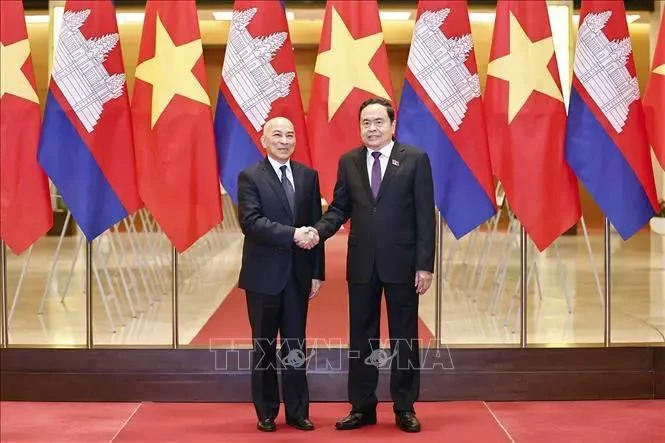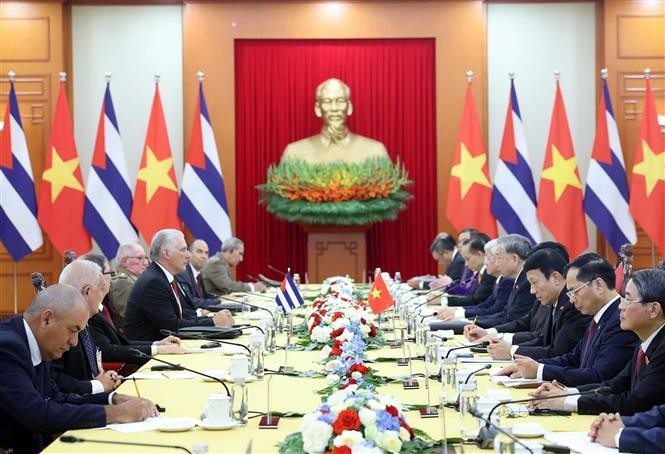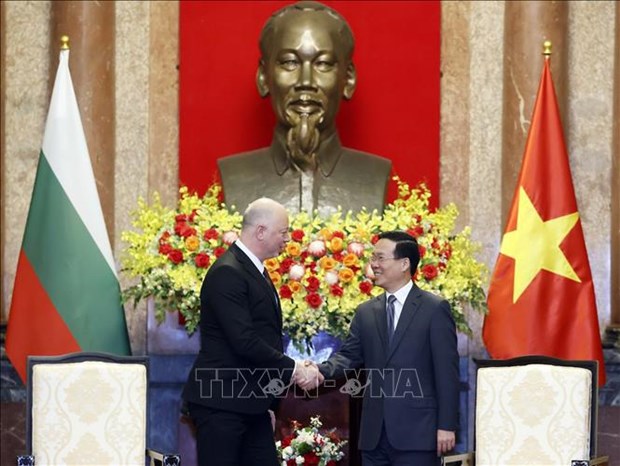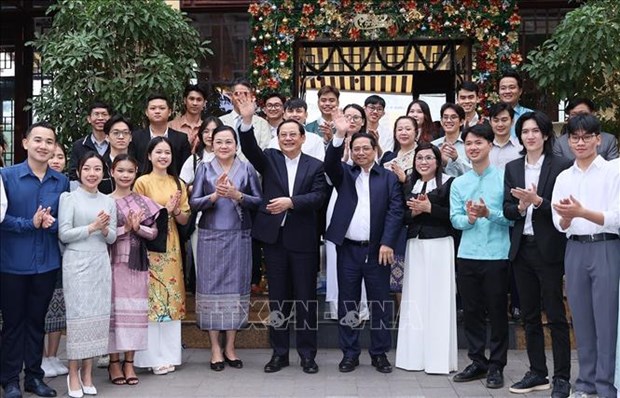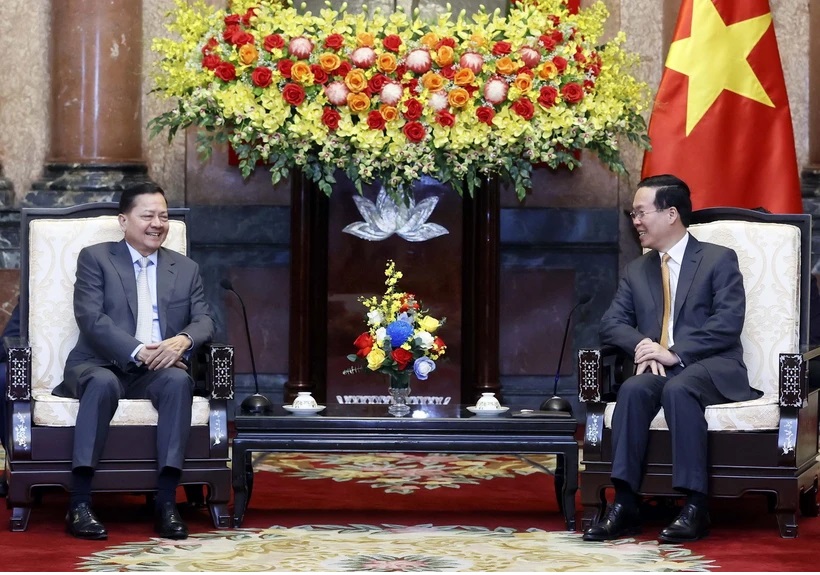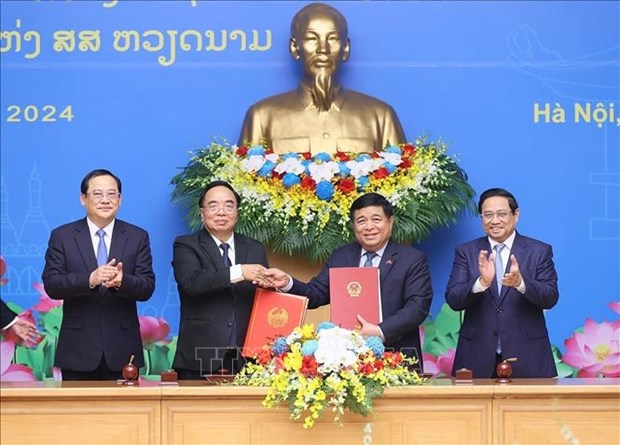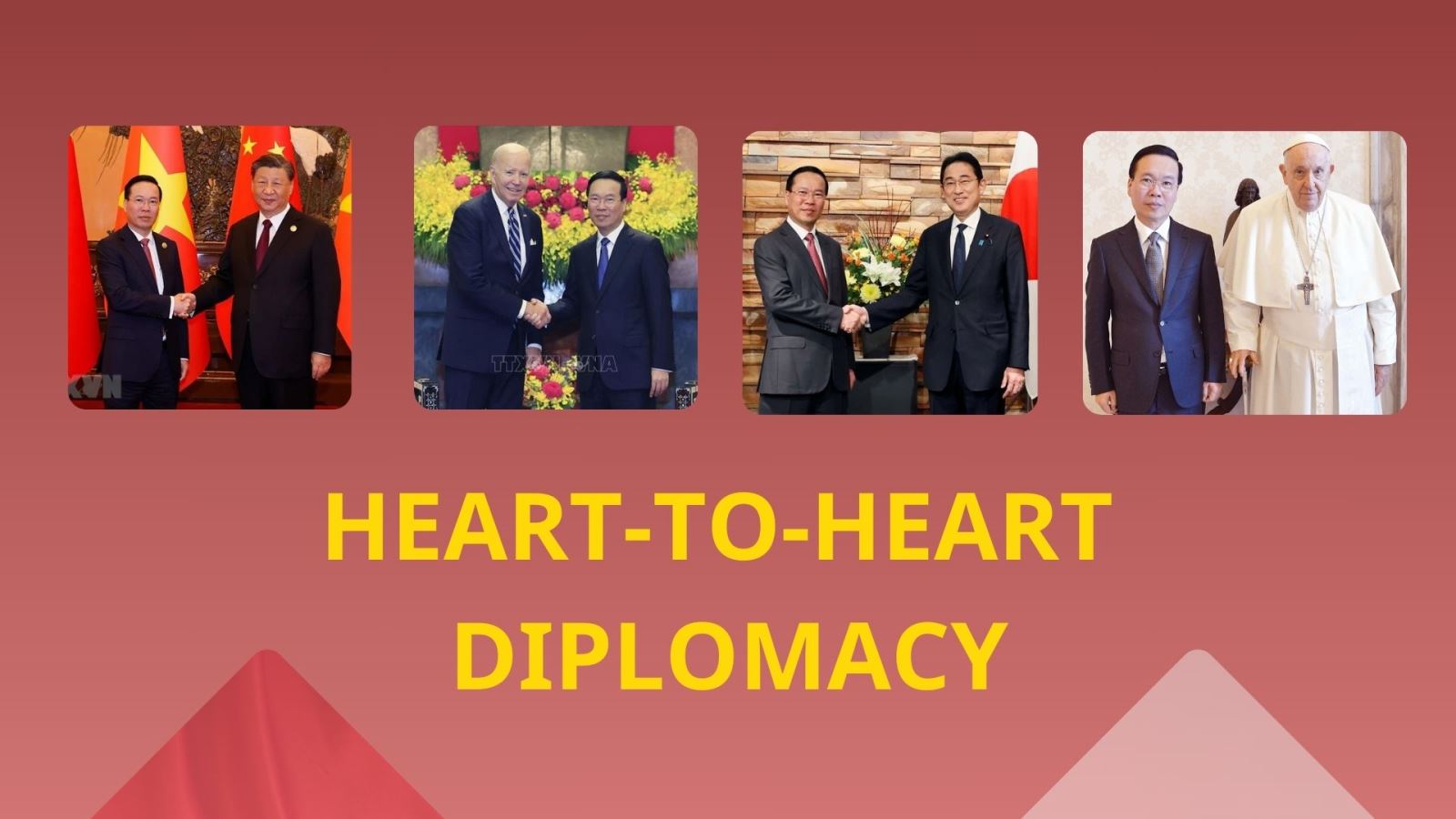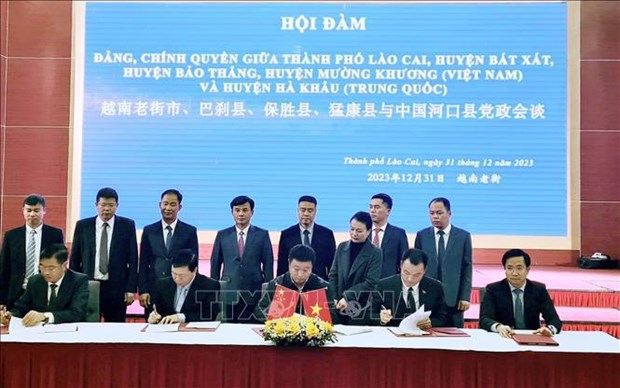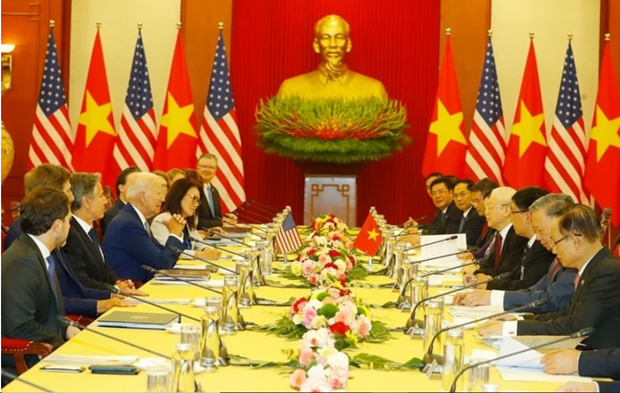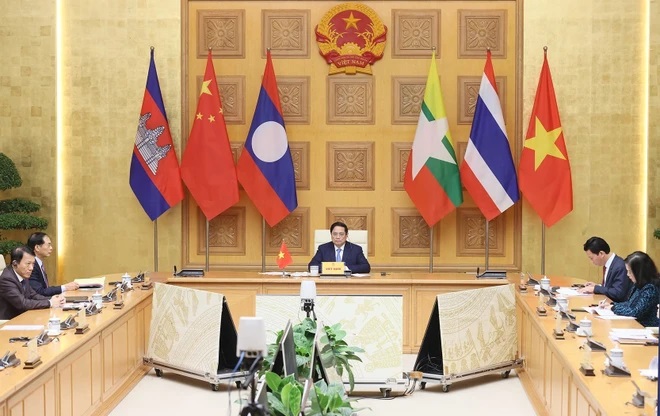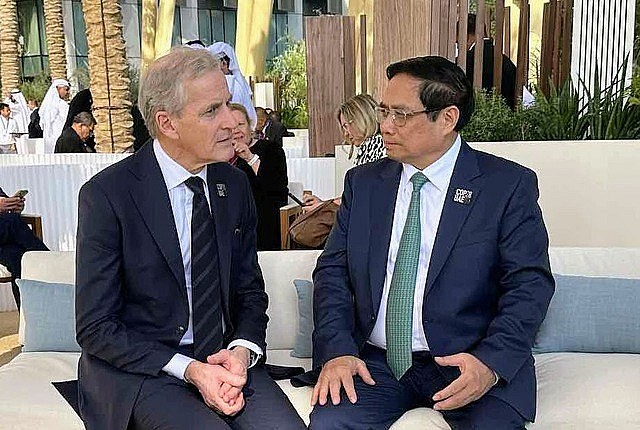 |
| Prime Minister Pham Minh Chinh meets Norwegian Prime Minister Jonas Gahr Store on the sidelines of the COP28 in the UAE on December 1, 2023. Photo: VGP |
Vietnam and Norway are trusted partners in many fields, including green economy and green energy. From the perspective of Vietnam-Norway relations, what can you say about the results of the 28th meeting of the Conference of the Parties (COP28) recently in Dubai?
Vietnam announced the resource mobilization plan for the Just Energy Transition Partnership (JETP) at COP28, which recently took place in Dubai.
Norway is committed to working closely with JETP's International Partners Group (IPG) and the Vietnamese government to promote this program.
At COP28, Norwegian Prime Minister Jonas Gahr Store met with Prime Minister Pham Minh Chinh. Prime Minister Jonas Gahr Store appreciated the recent visit to Norway by Vice President Vo Thi Anh Xuan, considering it a new impulse to promote cooperation between the two countries.
The two countries have been coordinating closely in these fields. We are supporting the Government of Vietnam to develop marine spatial planning through sharing Norwegian experiences in integrated ocean management as well as mobilizing the participation of the private sector.
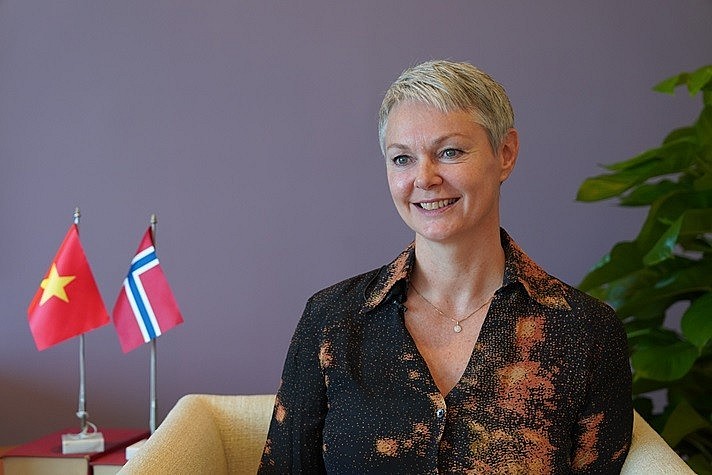 |
| Norwegian Ambassador Hilde Solbakken shared with reporters about Vietnam's green transformation efforts. Photo: KT |
Vietnam has been implementing many policies on energy transition, including policies that prioritize the use of renewable energy sources. How do you evaluate these efforts in Vietnam?
Vietnam is actively implementing its commitments towards green transition and net zero goals.
The Vietnamese Government approved the national electricity development plan, referred to as the 8th electricity plan, setting out a roadmap to transition to green energy for Vietnam.
Vietnam prepared well for COP28 this time. The resource mobilization plan is an important first step in implementing JETP.
For many years, Vietnam acted as the main driving force for renewable energy growth in the ASEAN region. What does the Vietnamese government need to do to achieve the goal of carbon neutrality by 2050?
First of all, climate change is a global challenge, and many countries around the world, including Norway, are implementing their own green transition roadmaps. Each country will know best what its goals are and what is important in its national context.
With the advantages of geographical location, Vietnam has great potential in developing and producing renewable energy. A long coastline and abundant wind resources are good premises for developing offshore wind power in Vietnam as well as turning Vietnam into a regional leader in renewable energy.
As one of the world's pioneers in renewable energy, Norway would like to share an important lesson to ensure success.
It is an open and constructive dialogue between the Government, the private sector, and stakeholders including non-governmental organizations.
We hope this experience can be useful to Vietnamese policymakers.
Vietnam clearly identified its immediate challenges in this process. We appreciate that Vietnam is focusing on strengthening the current institutional framework, and building new or amending regulations accordingly. This is an important basis for domestic and foreign investors to invest capital in renewable energy infrastructure. I think this is the right step.
Q.Hoa t.h / Vietnamtimes



